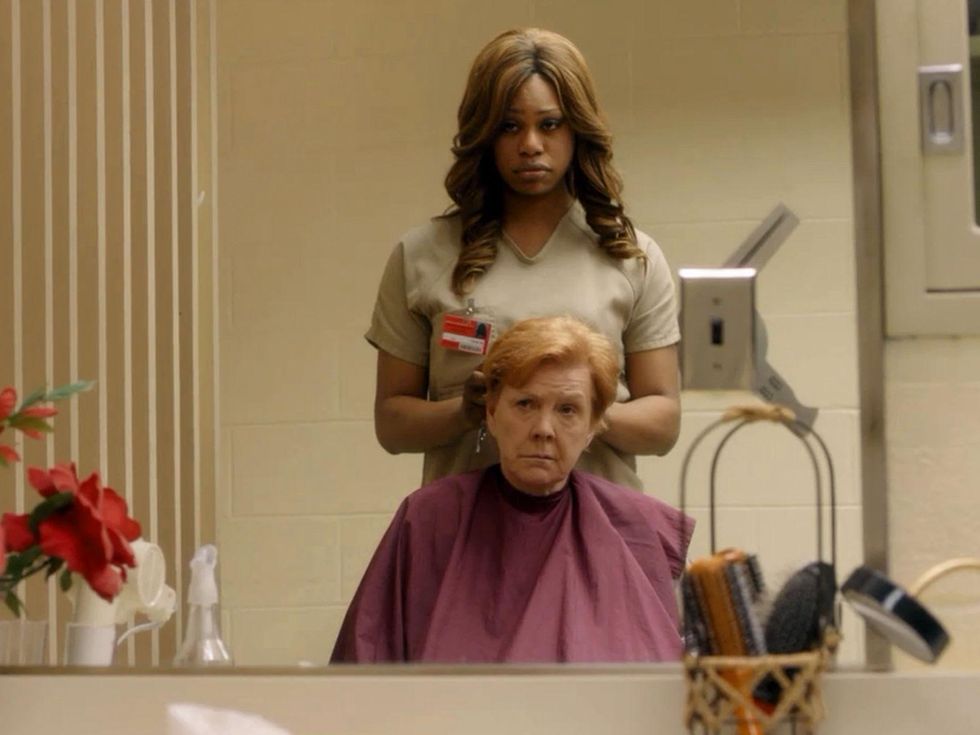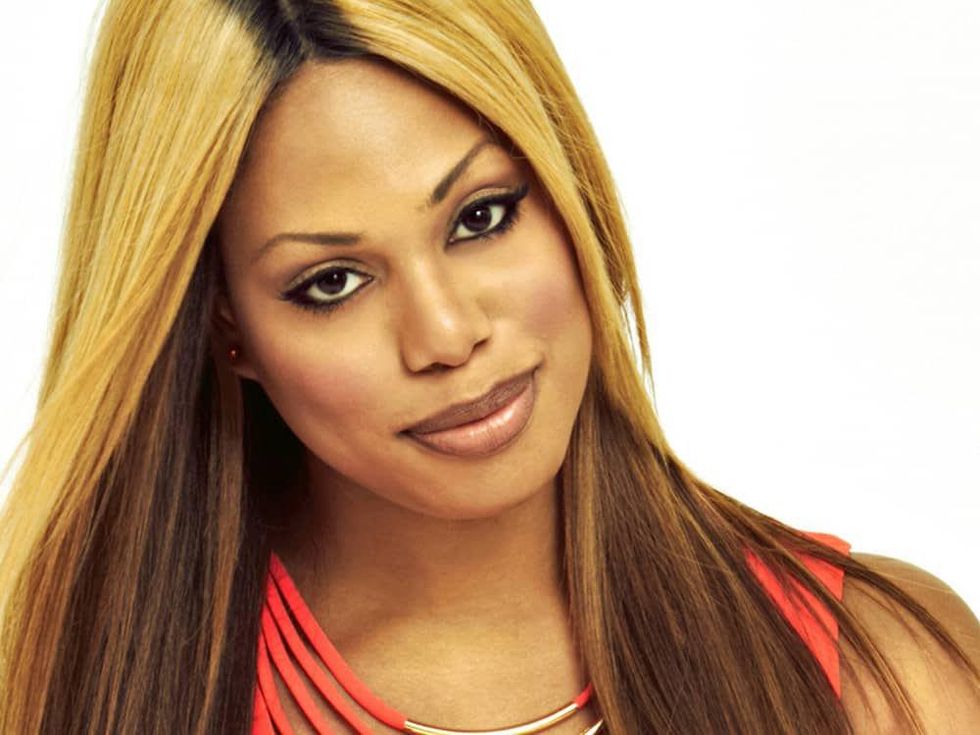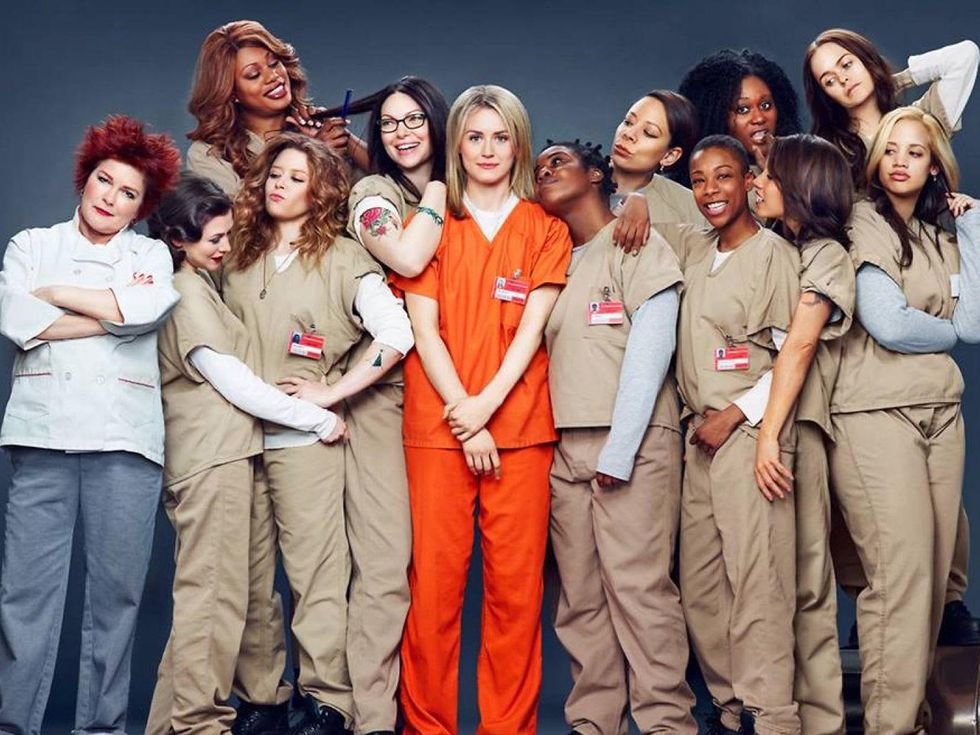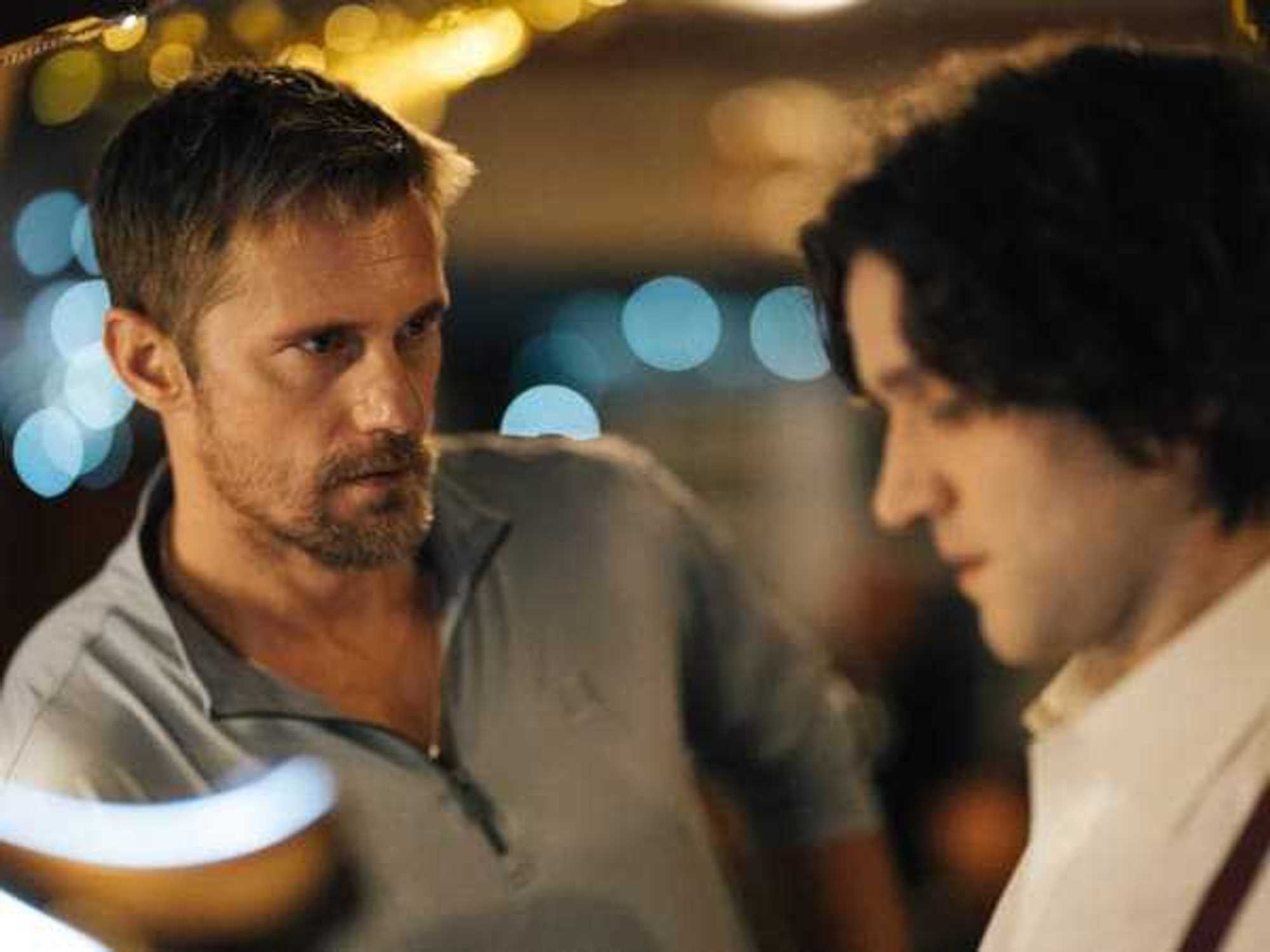The CultureMap Interview
Beyond transitions: Orange Is the New Black transgender star finds her own truth
"Human beings aren't supposed to live like this."
The quote is one of Sophia Burset's most memorable lines. The transgender character in the Netflix original series Orange Is the New Black has contributed to transgender actress and advocate Laverne Cox's rise to fame. Sophia's story, a tale of self-acceptance and personal discovery that's a microcosm for anyone who has struggled to fit in within a perplexing set of societal ideals, gleans strength from a universal human condition.
Are you resilient enough to be yourself?
"(My mom) is very accepting about my gender identity now, but she wasn't always there. She wants me to be happy and she's proud of this journey I'm on."
It's fitting that the National Conference on LGBT Equality: Creating Change, held through Sunday at the Hilton Americas-Houston, has invited the noteworthy celebrity to deliver a keynote address on Thursday at 7 p.m. The five-day event, a melange of skill-building workshops, talks, training sessions and networking opportunities, aims to empower the lesbian, gay, bisexual and transgender community with tools to further the task at hand: Full quality, social justice and dignity for all.
Alongside Cox, the impressive lineup of speakers include National Gay and Lesbian Task Force executive director Rea Carey, AIDS United president and CEO Michael J. Kaplan, Black AIDS Institute president and CEO Phill Wilson, thought leader Charles Stephens and vocalist Nona Hendryx.
Ahead of Cox's appearance in Houston, CultureMap chatted with her via phone from her residence in New York City. In learning about her experiences, just like Sophia, there's something in the real life of Cox that readily identifies with anyone who's struggled with living his or her own truth.
CultureMap: I can't help but love Sophia. I sympathize with her story, committing credit card fraud to fund her physical transition. Curious: Do you share anything in common with her character?
Laverne Cox: I think Sophia and I are good listeners. In her capacity of working as a hair stylist she learns to listen to people well. There’s something nurturing about her as a mother, as a wife. There's something very nurturing about me. We have that in common.
Before her transition, Sophia was able to pass as a guy in a way that I could never have passed as a man. Sophia is attracted to women and I am not — that's major. I didn't have to break the law to pay for my transition. Her connection with her family is also very real and complicated. I'd say I'm similar in that respect.
CM: Your twin brother, M. Lamar, played Sophia prior to her transition. You have a close relationship with him. You consider him your moral compass. But was there every tension between the two of you as you embarked on your journey of self discovery?
LC: Yes! The reality is that my brother, a brilliant artist and a brilliant thinker, is very punk rock with a anti-capitalist vibe. The tension was about being twins, he not wanting to be defined by being a twin. He has his own identity and is not interested in being half of someone else.
"We are more than our bodies. Trans people are more than their transitions."
My experiences are not his experiences. Just because we are twins and grew up in the same household — my story is not his story. I love him dearly. At the end of the day, my career aspirations tend to be in conflict with his anti-capitalist, anti-establishment values.
CM: What about the rest of your family?
LC: I'm only close to my mom. I've never been close to my extended family — we don't share much in common.
I'm writing a memoir. Over the Christmas break, my mom was in New York. I did an intense interview with her and asked a lot of questions about my family history that I was afraid to ask. She told me the honest truth about my childhood.
She's a remarkable woman. She grew up poor in the segregated South in Mobile, Ala. She raised two kids by herself, put herself through school and got a graduate degree. She's smart and self sufficient. She taught me a lot of lessons about being self sufficient, taking care of yourself and survival.
She's very accepting about my gender identity now, but she wasn't always there. She wants me to be happy and she's proud of this journey I'm on.
CM: Going to church was a big part of your childhood. Are you religious? Spiritual? How has your life affected your relationship with the practice of religion?
LC: I am a very spiritual person and I feel like I always have been. I believe that there's a power greater than myself. In this stage of my life, though, I am not a fan of organized religion. Saying that publicly makes me feel like, "oh my goodness, I am turning my back on how I was raised." But I am not.
A lot of the values I learned from church guide the way I live my life. There's a phrase in the bible, "Train up a child in the way he should go, and when he is old he will not depart from it." I feel like that's the case in my life.
But I do feel like organized can be oppressive and can be used for reasons that aren't godly. I do believe in God. I pray all the time. I ask for guidance. I feel a connection to a higher being. I feel like I'm here to be of service to God's plan.
"I believe that love and loving someone is a revolutionary act in and of itself."
CM: People are generally curious about the surgical process of morphing physically from one gender to another. But you often brush those questions aside. Why do you do that?
LC: We are more than our bodies. Trans people are more than their transitions. In some of my talks, I look at 60 years of trans representation in the media, especially in the genre of television talk shows. It's been more than 60 years since Christine Jorgensen returned from Europe after her surgery, making her the first famous trans woman in the world.
The conversation has been about transitions and surgery. It's my deep belief that this conversation objectifies trans people and keeps us in the state of our bodies and not our experience. That can be very dehumanizing.
Everyone is focused on the transition because they may assume it's the only interesting thing about us. When we tell our own story, the transition may or may not be a part of it. I want to break the cycle of how trans people are represented in the media and take it to a new level, as multi-dimensional human beings and not just miracles of modern medicine — or worse — as we are often presented.
CM: You once said, "It is a revolutionary act to love a transgender person."
LC: That was inspired by a book (Black Love is A Revolutionary Act by Umoja). Loving yourself is revolutionary as a trans person as being trans is not something that's being celebrated.
You are trans and you are beautiful — that's not what I was told. What I was told when I found out about transgender people is that you need to do whatever you can to pass as though you weren't transgender. You don't tell anyone you are trans because you're going to be shunned. The message is that trans isn't beautiful, it's not something to be celebrated, that you aren't deserving of love because you are a transgender person. That's ridiculous. We need love just like everyone else does.
I said that in the context of what Cornel West said, "Never forget that justice is what love looks like in public." I believe that love and loving someone is a revolutionary act in and of itself. Especially loving people who society says are disposable, people that are looked upon as less that human.
"Oppression makes us hate ourselves, you internalize the voices of your bullies."
CM: Sounds oppressive.
LC: Oppression makes us hate ourselves, you internalize the voices of your bullies. Bullying comes from outside the trans community and also inside the trans community.
I've been told at different points in my career by trans people that I look like a man, that I sound like a man and that I shouldn't represent the trans community. Loving myself means loving my deep voice, my big hands, loving big feet and being 5 feet, 11 inches in heels and over 6 feet tall in heels. Loving all that stuff about me is revolutionary because it's all beautiful. Differences should be celebrated.
CM: Are you dating?
LC: I am still single. I am really busy so dating is really hard. Girl, my schedule is crazy. I do manage to go on dates, but I am not in anything committed — yet.
I've been very lucky that the last couple of guys whom I've dated have been very sweet and supportive. As a trans woman, most of my dating history included dating men who were ashamed to be seen in public in me. The past few guys I've dated haven't been that way at all. I am not a bad looking chick and I have other lovely qualities that someone should be proud of.
CM: What do you look for in a man?
LC: Kindness, support and respect are the three most important things. And I need to be attracted to you. And there needs to be chemistry. And you have to be smart. If you can't have a stimulating conversation, we are not going to work.
___
The National Conference on LGBT Equality "Creating Change" is held at Hilton Americas-Houston from Wednesday through Sunday. Daily admission starts at $125, free for participants ages 16 and under and seniors over 65. Registration is available online.



